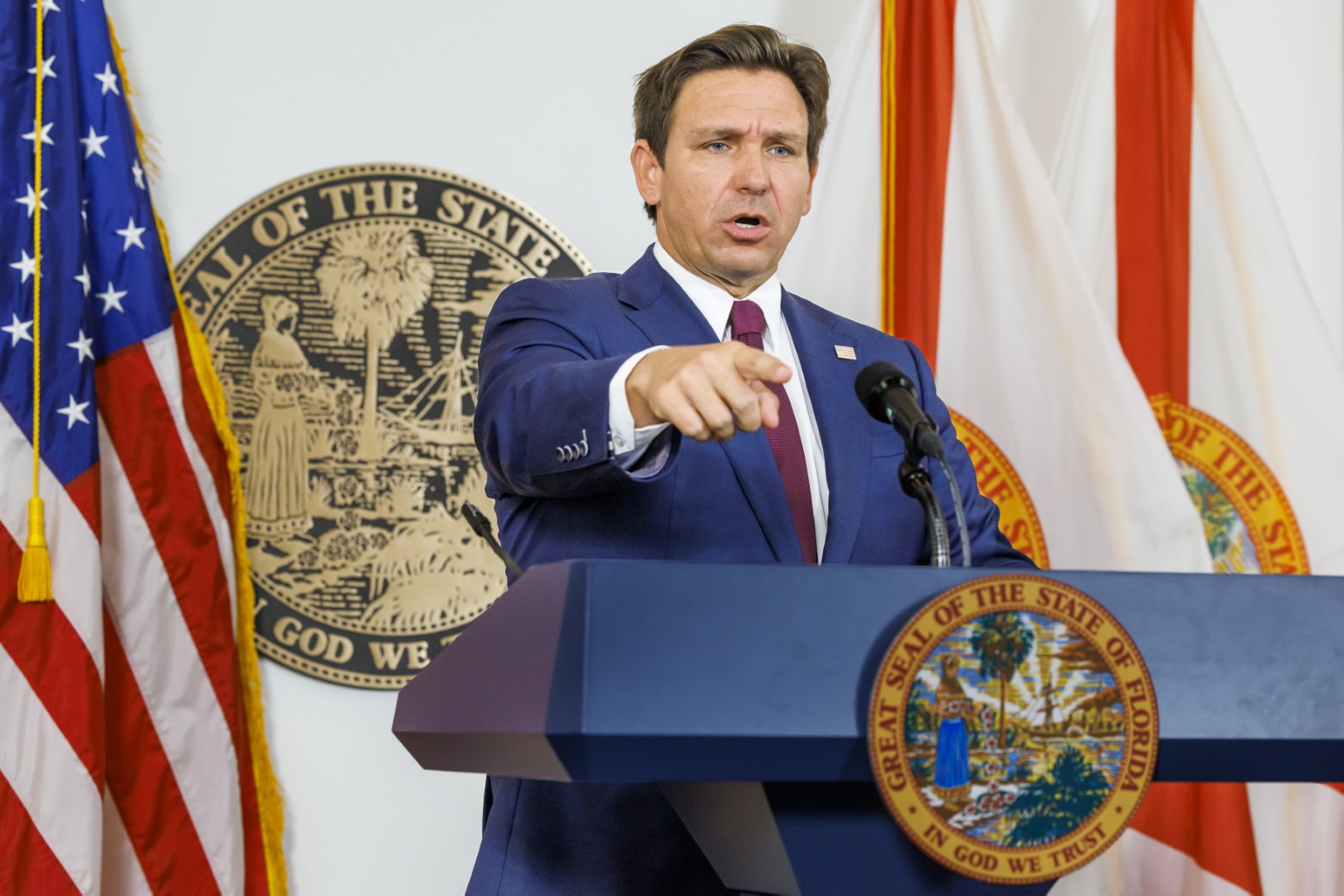April is National Donate Life Month, raising awareness for life-saving organ donations. And just in time, the group Donate Life Florida is announcing Florida’s first-ever statewide organ donor registration initiative, which could help the more than 5,000 Floridians awaiting life-saving transplants.
The campaign seeks to measurably boost the number of Sunshine State residents who become registered donors of organs, tissues and eyes.
The campaign will target a diverse audience, including those in historically under-registered groups. Fewer than 2 in 5 Florida drivers have elected to become organ donors when they receive or renew a driver’s license.
“Life is such a precious gift, and organ, tissue, and eye donation are such a selfless way to share that gift to extend and enhance the lives of others,” Donate Life Florida Chair Patricia Darrigan said. “Too many Floridians are dying while waiting for a transplant. Signing up takes just a moment — but that one moment can change so many lives and extend the legacy of every donor.”
One person could save up to eight lives through organ donation while healing dozens more, according to Donate Life. What’s more, tissue donors can enhance the lives of more than 75 people. Corneal transplants from eye donors, meanwhile, can restore the gift of sight.
“I literally would not be here today if not for the generous organ donation of a young woman whose life ended far too soon,” said Kris Vanni of the Brevard County community of Scottsmoor, who received a new liver when Tallahassee resident Aimee Sachs died following a massive stroke on May 31, 2023.
“If not for Aimee’s incredible gift, my husband would be raising our sons by himself, and I would not be able to watch them grow. That’s the difference organ donation can make — giving life to others and saving families, too.”
Vanni is one of three individuals whose lives were extended and enhanced by receiving organs from Aimee Sachs. Her dad, lobbyist Ron Sachs, said his daughter’s final act of kindness was the bravest thing his family had ever witnessed.
Ron Sachs and his family have given a private donation to endow the campaign’s launch, and he is urging others to also contribute.
Aimee Sachs, a journalist who was just 38 years old when she died, is featured in a moving public service announcement for Donate Life Florida. It shows her alive and vibrant in the hospital following a stroke, singing passionately along to Michael Jackson’s Man in the Mirror.
But as the video reminds, Aimee Sachs suffered a massive stroke just days later, leaving her completely paralyzed with no ability to communicate other than to blink her eyes. Still conscious, she made the choice to donate life.
“The greatest gift any of us can give is to make that personal commitment to be a donor, and the best way to enhance your own life’s legacy is to donate life to others,” said Ron Sachs, Chair Emeritus of Sachs Media in Tallahassee. “We hope Aimee’s inspiring story, and those of so many other donors and recipients, will widen the universe of people who choose to leave a gift of life.”
It’s free to become an organ donor, and becoming one won’t affect medical care or funeral arrangements. Donate Florida, a nonprofit organization, is authorized by the state to manage the Joshua Abbott Organ and Tissue Donor Registry as the state’s official organ, tissue and eye donor registry.
The group reminds anyone who may be on the fence about becoming an organ donor that it is a way to help a neighbor. Most organs have a limited period of viability, meaning recipients are likely to be in close geographic proximity. And it’s easy to register, with an online option at www.DonateLifeFlorida.org, or when applying for or renewing a driver’s license, auto tag or state identification card.
“Florida simply doesn’t have enough registered organ donors to keep up with the need,” Darrigan said. “We’re not just talking about numbers — we are talking about sons, daughters, mothers, fathers, neighbors, friends, and colleagues whose lives hang in the balance.”
The issue hits home for many, including former Senate President Kathleen Passidomo, whose husband, John, was an organ donor.
“John was so meaningful to everyone who knew him. He was the love of my life. He was a guiding light for our girls. He was a transformational leader for our community. And in the end, his tragedy gave life to others,” Passidomo said.
John Passidomo passed away last April after a fall while hiking with his wife in Utah.
Currently, fewer than 40% of Floridians have signed on as organ donors when obtaining or renewing their driver’s license at a Tax Collector’s Office last year. That means a staggering more than 60% of Floridians, on average last year, missed the opportunity to save a life should tragedy befall them.
“My life today is full of things I once feared I’d never experience again: time with my family, laughter with friends, simple moments that now feel extraordinary. All of that is possible because one person said yes,” said Tyrone Brisby of Jacksonville, who received a new heart from 14-year-old Tennessee donor Kyle Rodger in 2014.
“The goal of this campaign is to get registrations up to at least 50%, so more people will get to enjoy a second chance, the way I did.”
Post Views: 0

 Entertainment8 years ago
Entertainment8 years ago
 Politics8 years ago
Politics8 years ago
 Entertainment8 years ago
Entertainment8 years ago
 Entertainment8 years ago
Entertainment8 years ago
 Tech8 years ago
Tech8 years ago
 Tech8 years ago
Tech8 years ago
 Tech8 years ago
Tech8 years ago
 Politics8 years ago
Politics8 years ago









